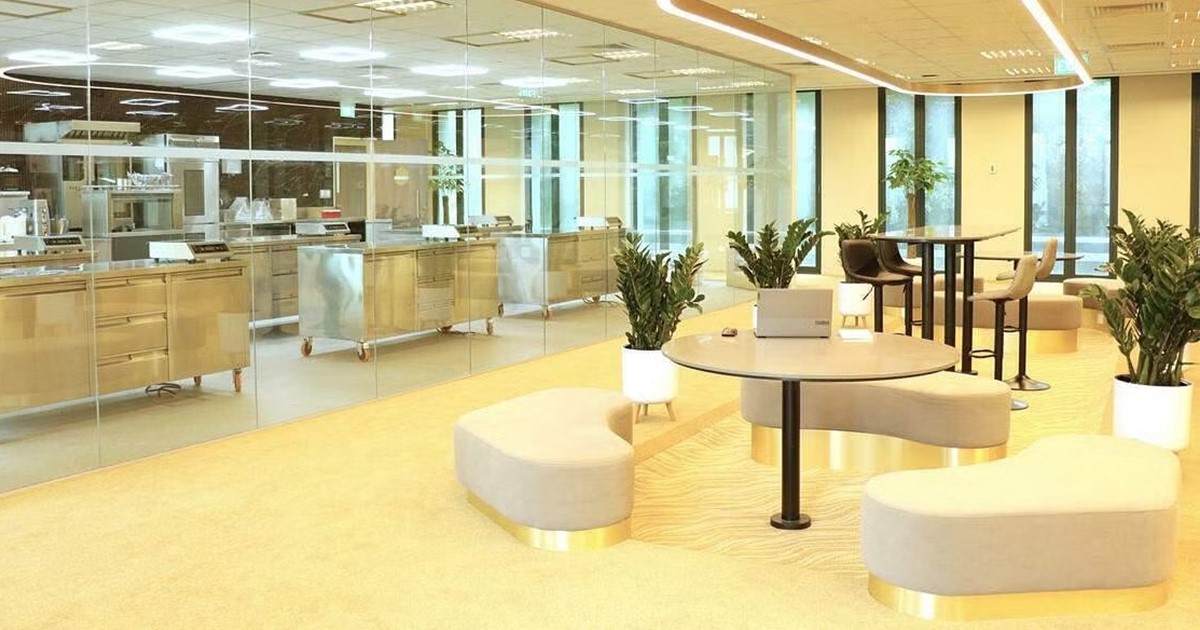: Shatec brings hospitality and culinary courses to Orchard Road – and the Middle East

AFTER four decades, the Singapore Hotel Association Training and Education Centre (Shatec) is opening its first overseas institute in Riyadh, Saudi Arabia, with classes to commence in the second half of 2024.
This is after its first satellite campus opened at Orchard Road this January – returning close to its origins at Nassim Hill.
“We believe that this industry needs people and that we are short of people all the time. It is important that we provide opportunities for anyone who wants to enter the hospitality industry to be able to learn new skills,” said chief executive Lim Boon Kwee.
Set up by the Singapore Hotel Association in 1983 to develop a talent pipeline for the hospitality industry, the private institute offers courses in hospitality, tourism and culinary arts.
It moved to Mount Sophia in the 1990s before settling at its Bukit Batok location. But this location was a pain point for Lim when he came onboard in 2022.
“When I first joined, I asked why we were in Bukit Batok when there were barely any hotels within 10 km,” he noted. “I said that we have to remain relevant.”
So when Lim heard last year that there was a space available in the Singapore Tourism Board’s (STB) building at Orchard Road, he seized the opportunity to set up a campus there.
The new campus in Tourism Court focuses on reskilling and upskilling, rather than training first-time workers.
Journey to Riyadh
Since 1993, Shatec has licensed its hospitality and culinary courses to schools in countries such as Sri Lanka and Thailand.
But the Riyadh venture is the first overseas school set up under Shatec’s brand – enabled by support from Enterprise Singapore (EnterpriseSG), STB and the Saudi Arabian government.
Before the pandemic, Shatec had already been exploring a collaboration with private Saudi Arabian company Modern Food Company to set up a school for hospitality talent in Riyadh.
Saudi Arabia has been investing in areas such as tourism, education and infrastructure in a bid to diversify its economy beyond the oil sector.
EnterpriseSG’s director for Middle East and Africa Rahul Ghosh said: “Tourism, in particular, is expected to contribute to 10 per cent of its gross domestic product, with the government’s target of 150 million tourist arrivals annually by 2030 contributing to the growth of consumer sectors such as hospitality, food services and retail.”
Last year, with the support of an EnterpriseSG grant, Shatec signed a licence agreement with Modern Hospitality Company (MHC) – a joint venture by Modern Food Company and two other Saudi companies.
“EnterpriseSG also engaged Saudi authorities from the tourism ministry and training institutes to secure their support, which was instrumental in establishing the new facility. We also supported Shatec with its set-up in Riyadh,” said Ghosh.
Between 2021 and 2023, EnterpriseSG supported more than 120 companies to venture into the Middle East.
Adapting to local tastes
The Riyadh school will be funded and run by MHC. Under the licensing partnership, Shatec customises the curricula and ensures that the facilities are conducive for training.
This involves understanding and adapting the curricula for local culture and social norms, said Lim. “We will customise some of the service procedures and food elements. For example, you cannot use alcohol over there.”
Another example is fine dining, he added. In Saudi Arabia, fine dining dishes are typically presented in full to guests, then portioned out individually for each diner. In Singapore, such dishes are typically presented in individual portions to begin with.
“We are also looking at the cross exchange of students, whereby students in Saudi Arabia will get the opportunity to come and study in Shatec Singapore, and vice versa,” said Lim.
Going overseas benefits not just Shatec itself, but Singapore, he added. “When we have exposure overseas in source markets for Singapore, it will help the locals in those source markets to understand Singapore better.”
“Hopefully we can also market Singapore not just as a school but as a destination.”
Lifelong learning
Back home in Singapore, Shatec has an annual intake of about 1,000 students, and a growing alumni pool of 40,000. The institute offers both part-time and full-time courses.
“Our mission here is to upskill our talent – not just with a full-time qualification, but also a career switch for people who are looking for a second career,” said Lim.
Most students are in their 20s, but about 10 per cent of the annual intake are above 40. This share is expected to grow as Shatec continues to offer programmes for mid-career switchers – and as the government encourages this.
Budget 2024, for example, provided a S$4,000 SkillsFuture credit top-up for workers aged 40 and above. Said Lim: “The Budget is basically a very good impetus to help us to provide more opportunities for talents that are not in the industry yet, but want to get in.”
Shatec has been part of the SkillsFuture programme since the latter began in 2015, offering SkillsFuture-accredited courses such as its Workforce Skills Qualifications (WSQ) Diploma in Food Services (Culinary Arts) and WSQ Diploma in Hotel and Accommodation Services.
And as the industry evolves, Shatec itself has improved its offerings. Tourism management was recently reviewed to include courses on digital and social media marketing, as well as information technology and sustainable artificial intelligence.
“Currently, 80 per cent of diploma students always want to look for a pathway for higher qualifications; maybe a higher diploma first, then a degree. So our programmes have to remain relevant.
“We have to be relevant to the aspirations not just of the industry, but aspirations of the learner,” said Lim.
Source: The Business Times © Singapore Press Holdings Limited. Reproduced with permission.

